The StrataBridge approach has been forged by forces working on us all.
While these forces often go unnoticed, ignored or misunderstood, they are so pervasive they shape our environment and condition our behaviours in fundamental ways.
We believe there are three such forces that are particularly relevant to organisations as they develop, deploy and deliver their strategies and establish the joined-up decision-making processes to keep them on track.
We’ve identified three ‘natural laws’ to help organisations define these forces and have developed principles to make sense of them.
The three laws:
We live in dynamic times. The world is an increasingly connected, complex and turbulent place. While change is not a new thing, many factors seem to be conspiring against us to increase the rate of change and the depth of its impact. Many of these changes are largely exogenous – caused by factors outside of the control of any one organisation – formed at the intersection of many different shifts, trends and dynamics. These types of changes may be explicable in hindsight, but are largely unpredictable, particularly in any detail. Despite this, many organisations have developed decision-making and planning processes founded on the implicit assumption of ever increasing ‘forecast accuracy’. They are likely to be disappointed; the world is complex and uncertain and our understanding of it is, by necessity, incomplete. In some organisations, many ‘changes’, or rather ‘surprises’, are self-inflicted, the result of a lack of coordination, poor communication or plain old lack of discipline or accountability. While we need to control the things we can control, we also need to establish ways of identifying the ‘weak signals’ of emerging changes and develop strategies to adapt as these unfold. Respecting the Law of Change keeps us vigilant for decision-making traps and sharpens our ability to harness change to our advantage.
To a large degree, the way we act and the actions we do and do not take depend on our perspective – personal, functional, geographic, short/long-term, to name a few. Confronted with the same challenge, opportunity or decision, we all see it different ways. Firstly we are all wired differently, with different experiences, prejudices and biases. Beyond this, our functional roles, often coloured by our functional measures and incentives, create another filter we see issues through – where you stand on a subject is often a function of where you sit in the organisation. By their nature, these different perspectives create tension. Too often, this becomes a negative tension as the holders of these perspectives do not want to understand others viewpoints and merely want to advocate their own point of view. Used properly, these different perspectives generate a creative tension, adding richness to our understanding and decision-making. Actively seeking to understand others viewpoints, and the mental models that shape them, we can gain unique insights and approach decision-making in a more holistic way. Respecting the Law of Perspective keeps us open to, and looking for, different angles on a subject; building our processes, routines, behaviours and capabilities to explore and exploit different points of view. This does not mean however, that decisions are ‘watered-down’ to a compromise; the Law of Perspective also means we sharpen the overarching viewpoint we will use to guide our decisions and act on them in a coherent way.
Taken from the second law of thermodynamics, ‘entropy’ measures a physical system’s degree of disorder, and recognises that in any isolated physical system and all natural processes, the entropy of the world always increases. Similarly, any organisation with many moving parts becomes uncoordinated, misaligned and unfocused over time. We need to keep investing energy into a business to keep its overarching purpose, form, structure and routines alive, fresh and relevant, even if there are no shifts in strategy or competitive activity. No organisation has energy to squander and we need to understand the leverage points that will have the greatest impact in moving us towards our goals. The most basic idea of strategy is the use of strength against weakness. Organisational capability and alignment is an undervalued strategic asset and one we have completely in our control. Developed properly it magnifies our strengths and directed towards our strategic priorities it exploits others weaknesses, combatting entropy and focusing organisational energy. Respecting the Law of Entropy ensures that we do not let our efforts erode and we keep investing in directing the organisation to coherent action in support of our strategy.
Let’s be honest; we made these up – and used the language of ‘Laws’ and ‘Principles’ in an attempt to give them an air of ‘scientific credibility’!. But by defining them in this way, we can understand their effects (both positive and negative) and develop potential responses.
By explicitly thinking about these laws we can explore our assumptions about how these will influence us over time, and make conscious choices about how we define our ideal world – our processes, routines, attitudes and behaviours – to use these natural forces to our advantage.
Ignoring, or being oblivious to, these forces can catch us out with significant consequences – constantly being disappointed (and, paradoxically surprised!) that we cannot order and predict the vagaries of human nature or the chaos of the market; squandering resource and energy through misalignment and ‘non-value adding diversity’; failing to invest in capability building and seeing our previous efforts erode.
Respecting, and harnessing, these forces can work to our advantage – controlling what we can control and preparing ourselves to adapt to what we can’t; harnessing different points of view and leveraging the richness of diverse opinions to make more informed decisions; investing our precious resources on the greatest leverage points and building organisational bench-strength.
Ignoring these three laws is foolish. Respecting them gives you a choice to act on them. Understanding alone is not enough… getting an elephant to understand the law of gravity still isn’t going to get it off the ground (it might be entertaining seeing it try though!). Beyond understanding, we need to equip people with skills, competencies, tools and practical actions to help them contend with the forces working on them and harness them to our advantage.





Comments (9)
Comments are closed.